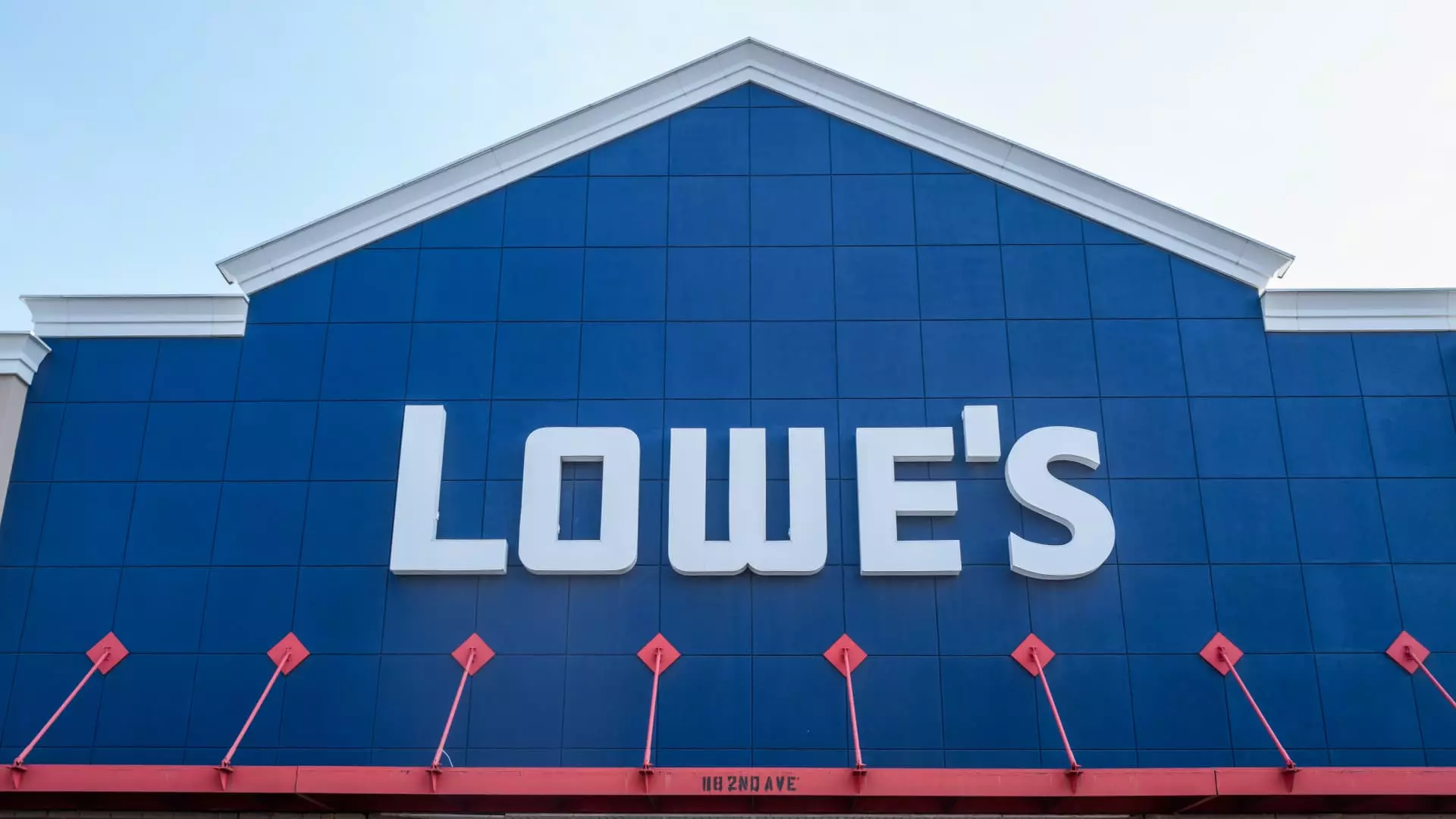In today’s economic climate, persistent inflation could have a significant impact on interest rates, ultimately affecting various sectors, including the housing market. With the Federal Reserve’s preferred measure of inflation remaining steady, there is speculation that the central bank may delay anticipated interest rate cuts. As a result, investors are looking for opportunities to profit from this situation, particularly through options trading that bets against the housing market.
One potential options trade strategy that has been proposed involves taking a bearish stance on Lowe’s (LOW) within the consumer discretionary sector. The rationale behind this trade is the belief that a high-interest-rate environment will continue to put pressure on home buyers, which could negatively impact stocks like Home Depot and Lowe’s. By analyzing the 6-month daily chart of LOW, several indicators point towards a potential change in trend.
One key technical indicator that has been utilized in assessing this trade is the Relative Strength Index (RSI). When the RSI exceeds the 70 area, it suggests that a stock is overbought. However, it is important to wait for the RSI to dip below 70 before considering a bearish trade setup. This condition is currently being met with Lowe’s stock. Additionally, the Directional Movement Index (DMI) has shown signs of a possible trend change as the DI lines are starting to shift direction. Furthermore, the price action itself indicates a series of lower highs and lower lows, confirming a downtrend.
The trade structure being employed in this scenario is called a “bear put spread” or “put debit spread.” The specific trade setup involves buying a $250 put with an April 19th expiry date and selling a $245 put with the same expiry date. The cost of this trade is $250 with a potential profit of $250. The choice of April 19th as the expiration date is strategic, as bear put spreads tend to work best between 14-21 days. If LOW trades at or below the short strike by the expiration date, this trade has the potential to yield a 100% return on the amount risked.
The impact of persistent inflation on interest rates and the housing market is a significant consideration for investors. By leveraging options trading strategies such as bear put spreads, it is possible to capitalize on the anticipated changes in the market. However, it is essential for investors to carefully analyze technical indicators and market trends before executing such trades. As with any financial decision, it is advisable to seek advice from a financial or investment advisor to ensure that the chosen strategy aligns with individual circumstances and goals.

